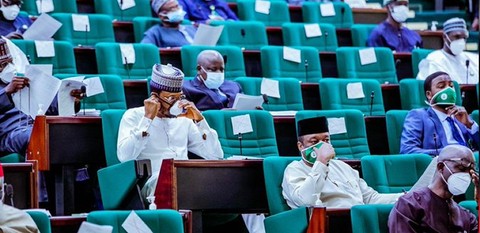
This is as reports revealed that a bill proposing the establishment of 47 new universities successfully passed the second reading before lawmakers.
Simultaneously, approximately 56 bills have also passed the second reading to establish Federal Medical Centres in various regions of the country.
Currently, Nigeria has 52 federal universities, with certain states hosting more than one. It is gathered that the House of Representatives is deliberating on several bills to establish approximately 32 Federal Colleges of Education, 11 Federal Colleges of Agriculture, and five Federal Polytechnics, in addition to the existing institutions.
Alongside the 52 federal universities, Nigeria also has 22 federal medical centres, 27 federal colleges of education, and 40 polytechnics.
Some of these bills were previously passed in the 9th Assembly but lacked the necessary concurrence from the Senate or were not signed by the President.
Once established, these institutions will include Universities of Science and Technology, Agriculture, Aviation, Medicals, and Engineering, among others.
According to The PUNCH, the House order paper revealed that the lawmakers are currently deliberating on various bills aimed at establishing Colleges of Vocational and Skill Acquisition, Cancer Research, and Entrepreneurship.
Additionally, the study revealed that Lagos State has made a request for the establishment of three new Federal Medical Centres, in addition to the existing one.
During his address to the House on December 30, 2023, Speaker of the House of Representatives, Tajudeen Abbas, highlighted that the Green Chamber has received and reviewed a total of 962 bills, 500 motions, and 153 petitions within a span of six months.
Furthermore, the member representing Zaria Federal Constituency, Kaduna State, shared that out of the bills considered, 120 have successfully passed the second reading and are currently undergoing further review for legislative actions.
In a previous statement made by the President of the Academic Staff Union of Universities (ASUU), Prof. Emmanuel Osodeke, he emphasized that the absence of a funding template for the establishment of universities has contributed to the decline in the quality of tertiary education in the country. This was discussed during his presentation at the 14th Ralph Opara Memorial Lecture, organized by the National Association of Seadogs in Benin, which focused on the state of tertiary education in Nigeria and the identification of historical issues and misconceptions, as well as potential solutions.
Additionally, the ASUU president highlighted that the government’s method of appointment and recruitment into state-owned universities has also played a role in exacerbating the problem.
Osedeke said, “One of the major problems facing the tertiary institution is the establishment of universities without template for funding. The method of appointment and recruitment into state-owned universities by the government has also been a problem.’’
Furthermore, the Port Harcourt Zonal Coordinator of ASUU, Stanley Ogoun, emphasized the pressing need to amend the National Universities Commission Act in order to prevent governors from haphazardly establishing new universities without providing sufficient funding.
The union expressed concern that governors were treating the establishment of tertiary institutions as mere constituency projects, thereby neglecting the welfare of existing universities.
The Federal Inland Revenue Service (FIRS) has begun its recruitment exercise for experienced professionals to…
Primate Elijah Ayodele Unveils 94-Page Prophecy for 2025, Makes Striking Predictions About Nigeria’s Political and…
The Senior Special Assistant to President Bola Tinubu on Community Engagement (North Central), Abiodun Essiet,…
The Minister of Information and National Orientation, Mohammed Idris, has warned politicians against linking stampedes…
Tobi Adegboyega, founder of the Salvation Proclaimers Anointed Church (SPAC Nation), has stated that he…
The Independent Petroleum Marketers Association of Nigeria has said that petrol is going to sell…